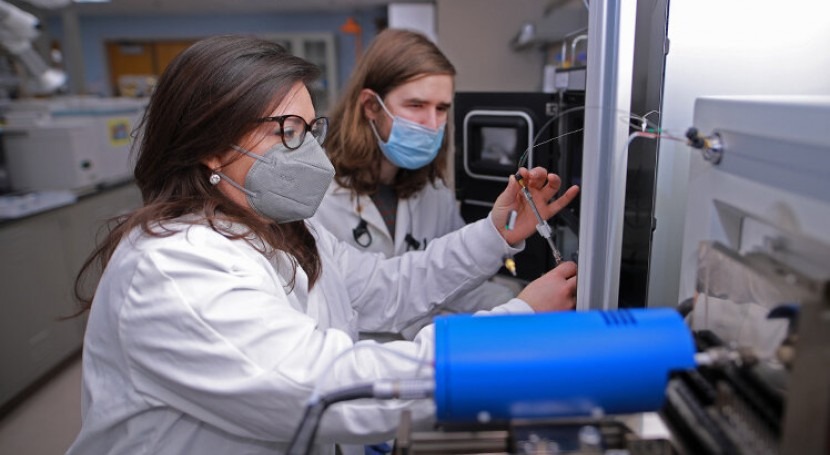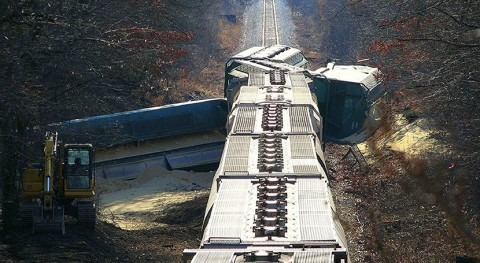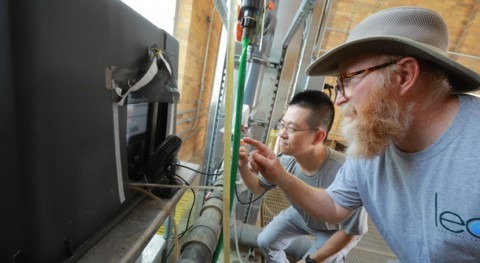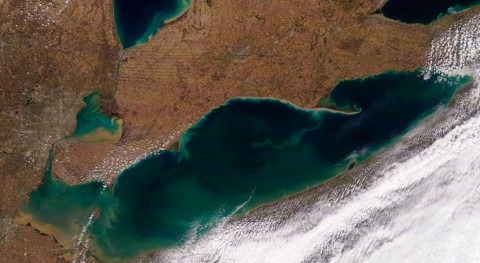As companies that drill for oil and natural gas using hydraulic fracturing consider recycling and reusing wastewater that surfaces from wells during the fracking process, chemists at The University of Toledo discovered that the new and unexplored waste contains many environmental contaminants including organic chemicals and metallic elements.
Research scientists at UToledo's Dr. Nina McClelland Laboratory for Water Chemistry and Environmental Analysis in collaboration with the University of Texas Arlington achieved a comprehensive characterization of the chemical composition of produced water samples extracted in Texas, indicating the presence of toxic and carcinogenic contaminants in untreated samples, which can pose a threat to wildlife and human health.
Unraveling the complex composition of produced water by specialized extraction methodologies, the results published in Environmental Science and Technology provide critical information that can help regulatory agencies fine-tune proposed guidelines related to the safe treatment and disposal of fracking wastewater to protect drinking water sources.
"The discovery of these chemicals in produced water suggests that greater monitoring and remediation efforts are needed since many of them are listed to be dangerous for human health by the World Health Organization," said Dr. Emanuela Gionfriddo, assistant professor of analytical chemistry in the UToledo Department of Chemistry and Biochemistry, and the School of Green Chemistry and Engineering. "Our comprehensive characterization sheds insight into the processes taking place during hydraulic fracturing and the nature of the geologic formation of each well site."
Analysis found a total of 266 different dissolved organic compounds
Drilling operations are often performed by injecting treated water into the subsurface that contains various publicly undisclosed additives to assist in the drilling process. The injected water mixes with groundwater and then resurfaces as waste byproduct containing contaminants both from the drilling site and the additives used.
The chemists used an approach developed by Gionfriddo's research team in 2020 called thin-film, solid-phase microextraction to extract organic solubles from eight produced water samples from the Permian Basin and Eagle Ford formation in Texas.
Analysis found a total of 266 different dissolved organic compounds, including a pesticide called atrazine; 1,4-dioxane, an organic compound that is irritating to the eyes and respiratory tract; pyridine, a chemical that may damage the liver; and polycyclic aromatic hydrocarbons (PAHs), which have been linked to skin, lung, bladder, liver and stomach cancers.
Using a new polymer developed in 2021 at UToledo, the team also confirmed the presence of 29 elements, including rare earth elements, selenium and hazardous metals such as chromium, cadmium, lead and uranium.
The researchers also suggest the technology used for their comprehensive analysis of produced water is essential for proper reuse or disposal by oil and gas producers.
"We found a way to use more accessible instrumentation in the analysis of such complex samples compared to more expensive workflows involving high-resolution mass spectrometry," said Dr. Jon Kirchhoff, Distinguished University Professor and chair of the UToledo Department of Chemistry and Biochemistry.








